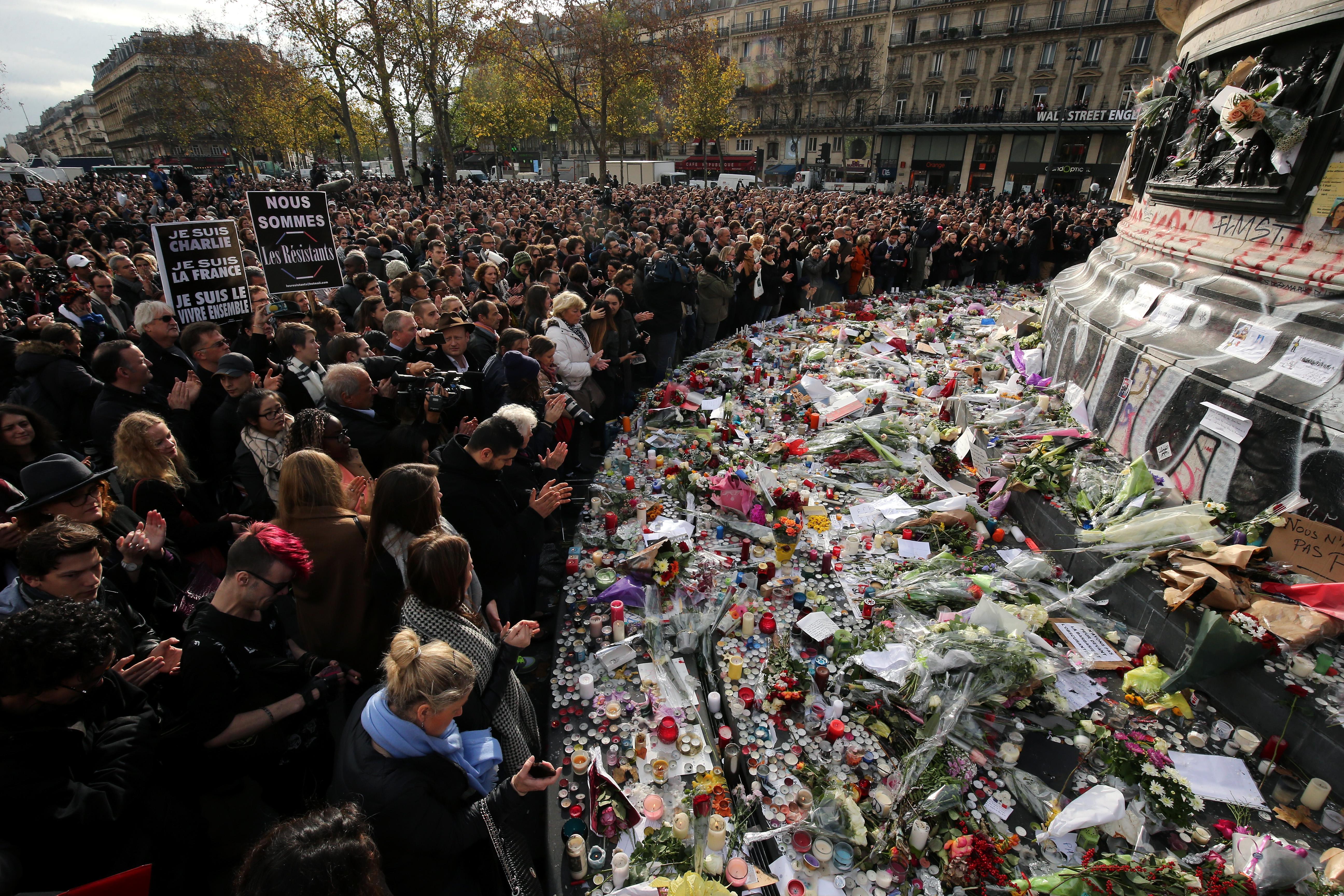If you like what you see, please encourage a friend, family member, or enemy to sign up for the Today in Slate email newsletter here.
Slate-ernité,
The world has continued reeling from the Paris attacks, and France continued its aggressive response, pursuing a manhunt for the suspected eighth attacker within its borders and in Belgium, which has become a breeding ground for terrorists, and bombing ISIS targets in Syria.
Monday brought new questions and answers about where the Paris attacks came from—and about what happens now.
Many mysteries remain about the massacre. Here’s one: Why did the attackers target the Eagles of Death Metal concert? Despite being American, the band isn’t anti-Muslim or jingoistic. But the Bataclan concert hall was filled with its fans, who are young, bohemian, fun-loving, multiethnic people, the sort that ISIS and its admirers claim to despise. There’s sad irony in this choice; the people killed at Bataclan are exactly the sort of French men and women most likely to be open to other cultures, to look out for the health and well-being of marginalized and poor communities, and to fight French xenophobia and nativism usually focused on the country’s Muslims and Arabs. In other words, the killers massacred the French people most likely to sympathize with their troubles.
In response to the attacks, American governors and nativist presidential candidates have demanded closing borders and have vowed to refuse Syrian refugees. But such reactions could be counterproductive. To paraphrase a colleague, reneging on commitments to help Muslim families in need and forcing them to live in inhuman camps is a decent way to disillusion and radicalize young Muslim men. Actually, rejecting refugees reflects the desire of ISIS itself. Moreover, as much as security forces can beef up their numbers and procedures, and speed up reaction times to violence, preventing these kinds of attacks is extremely difficult. There are not enough armed guards and metal detectors in the world to lock down every public place from a determined, murderous person.
There is much more to come on this awful story. Read all of Slate’s coverage on the attacks and their aftermath.
There is other news in the world, I promise.
- Twenty-one very young pro-science people are suing big oil companies and the president over climate change.
- Phil Plait praises Congress’ pro-science Republicans.
- There’s nothing praiseworthy in the fact that women generally stop getting raises after 40.
Entendez-vous dans les campagnes,
Seth Maxon
Home page editor for nights and weekends
